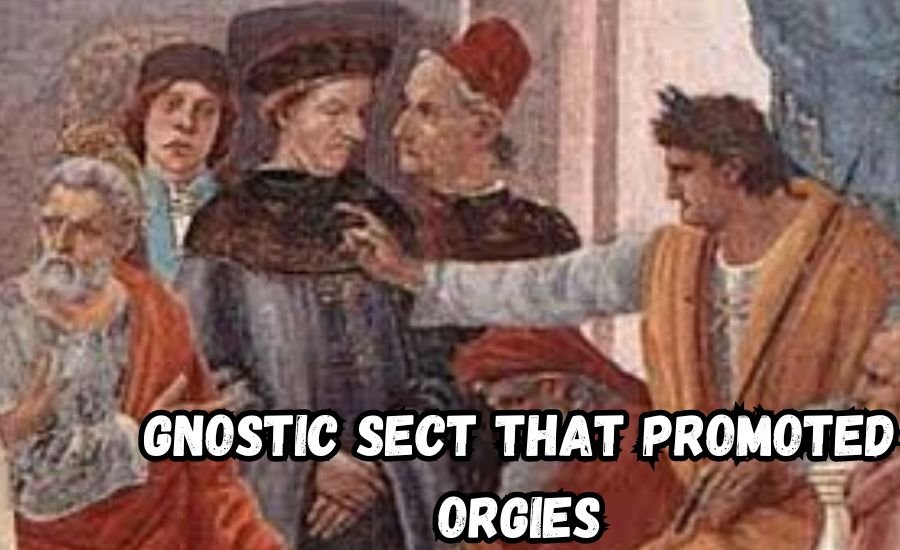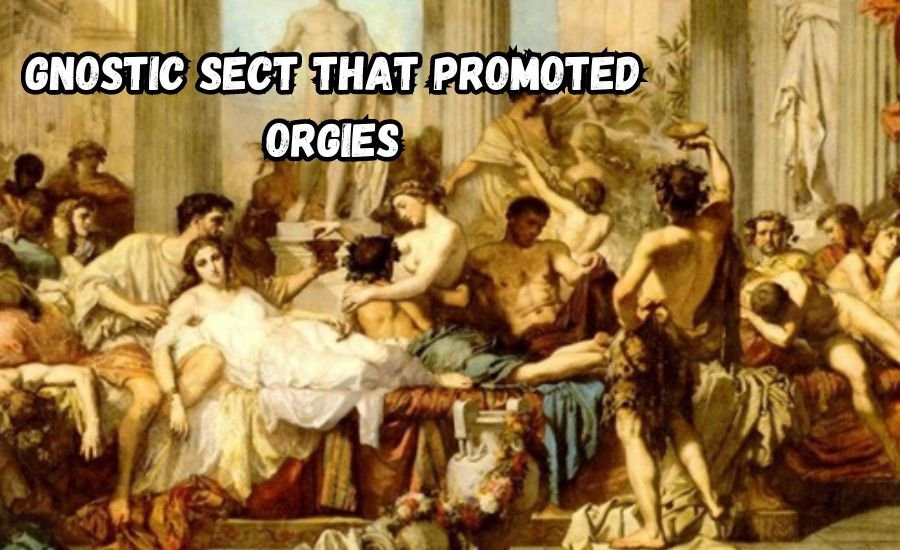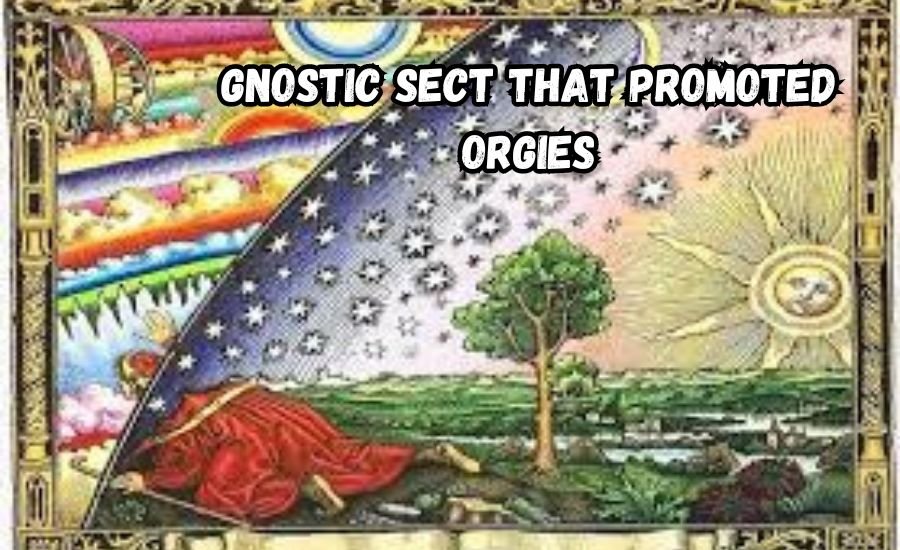Gnostic Sect That Promoted Orgies: Mystical Rituals and Radical Beliefs

Religion has always had a rich and diverse history. Over centuries, many sects and movements have risen and fallen, each with unique interpretations of the spiritual world. Among these groups, some have stood out for their unconventional beliefs and practices. One such group is the Gnostic sect that promoted orgies—a sect that shocked and fascinated many with its radical views on morality and spiritual enlightenment.
In this article, we will explore this intriguing Gnostic sect, diving into their history, beliefs, and practices, with a focus on their controversial use of sexual rituals as a means of spiritual transcendence.
Introduction to Gnosticism and Its Historical Context
Gnosticism is a term that describes various religious movements that arose in the early centuries of the Common Era. These movements were characterized by the belief that the material world was a flawed creation, and that true salvation could only be achieved through spiritual knowledge, or “gnosis.”
For Gnostics, the world we live in wasn’t created by the ultimate, benevolent God, but by a lesser being known as the Demiurge. This entity was seen as responsible for trapping human souls in the material world, and it was the Gnostic’s mission to escape this prison through enlightenment.
What Is Gnosticism? The Foundation of a Radical Belief System
Gnosticism is deeply rooted in the idea that knowledge is the key to freedom. Unlike mainstream Christianity, which often focused on faith and divine grace, Gnostics believed that secret knowledge or understanding was necessary for salvation. According to Gnosticism, the material world is inherently flawed or evil because it was created by the Demiurge.
The Demiurge: A Flawed Creator
The Demiurge is often portrayed as a lesser god who created the physical world and keeps humanity trapped in it. This Gnostic idea is a complete departure from the Christian belief in an all-loving, all-powerful Creator. Gnostics viewed the material world as a distraction from spiritual truth, and they sought to free themselves from it by achieving spiritual wisdom, or gnosis.
The Divine Spark
According to Gnostic teachings, every human being possesses a divine spark within them, a piece of the true God that the Demiurge has trapped within the material body. The goal of a Gnostic is to awaken this divine spark and return to the spiritual realm.
Read Next: Finbusines
The Rise of the Gnostic Sect That Promoted Orgies

While many Gnostic sects existed, one particularly controversial group stood out for its radical interpretation of Gnostic beliefs—this is the Cainite sect, a group that promoted practices, including orgies, as a pathway to spiritual liberation. This sect, known for embracing figures from the Bible that traditional Christianity condemned, believed that sin and morality were mere constructs of the Demiurge, meant to keep people trapped in the material world.
Who Were the Cainites?
The Cainites revered figures like Cain, who was traditionally seen as a villain for killing his brother, Abel. They believed that biblical figures like Cain possessed hidden knowledge and that their actions, often considered sinful by mainstream religion, were actually acts of divine wisdom. For the Cainites, defying conventional morality was a way to subvert the Demiurge’s control over the physical world.
The Controversial Practices of the Cainite Gnostics
The Cainites took Gnostic teachings to the extreme. They argued that the moral standards upheld by society were merely tools of the Demiurge to keep humans in bondage. To break free from this control, the Cainites believed that one had to reject societal norms, including sexual ethics.
Defying Conventional Morality
For the Cainites, following traditional moral rules meant staying enslaved by the Demiurge. They believed that true spiritual liberation came from breaking free from these moral constraints, which included engaging in behaviors that were deemed sinful by the broader society.
Sexual Rituals as Spiritual Practices
Perhaps the most controversial practice of the Cainites was their use of sexual rituals, including orgies, as a means of attaining spiritual enlightenment. For them, sexual union was more than just a physical act—it was a form of mystical communion that allowed individuals to transcend the material world.
The Symbolic Meaning Behind Sexual Rituals
For the Cainites, sexual rituals had deep symbolic meaning. These rituals weren’t just about indulgence; they were seen as acts that could disrupt the Demiurge’s hold on the soul. By engaging in activities that society considered immoral, they believed they could achieve a higher level of spiritual understanding and, ultimately, escape the material world.
Challenging the Demiurge Through Sin
The Cainites viewed actions considered sinful by mainstream religion as acts of rebellion against the Demiurge. By rejecting moral laws, they sought to regain control over both their physical bodies and spiritual selves. Through this defiance, they aimed to achieve gnosis, the spiritual wisdom that would free them from the physical world.
Mystical Communion Through Sexual Union
The act of sexual union in these rituals was seen as more than just a physical interaction. It was viewed as a way to connect with the divine spark within oneself and others. For the Cainites, these acts were a form of communion with the divine and a way to transcend the limitations of the body.
Gnostic Sects vs. Mainstream Christianity: A Clash of Beliefs
The Gnostics, particularly the Cainites, were in sharp contrast to the early Christian church. While Christianity promoted a strict moral code and the importance of faith in salvation, Gnosticism focused on knowledge and spiritual awakening.
Christian Condemnation of Gnosticism
Gnostic beliefs were considered heretical by the early Christian church. The church viewed Gnosticism as a dangerous deviation from the true faith, and many Gnostic texts were condemned and destroyed. Gnostics were often persecuted for their beliefs, especially for their rejection of conventional morality and their radical practices.
The Decline of Gnosticism
Over time, as Christianity became more established, Gnostic sects like the Cainites faded into obscurity. However, the legacy of Gnostic thought continued to influence religious and philosophical discussions for centuries to come.
Misconceptions About Gnosticism and Its Sexual Rituals

In modern times, many misconceptions surround Gnosticism, particularly the sects that practiced sexual rituals. Some people view these rituals as purely hedonistic, while others see them as bizarre and extreme. However, for the Gnostics, these practices were deeply spiritual acts with profound symbolic meaning.
Modern Interpretations of Gnosticism
Today, scholars have a more nuanced understanding of Gnostic beliefs and practices. They recognize that while some Gnostic sects, like the Cainites, engaged in practices that shocked the broader society, these acts were rooted in a genuine desire for spiritual enlightenment.
The Influence of Gnosticism on Modern Thought
Though Gnosticism as a formal religion declined, its influence can still be seen in various modern spiritual movements. The Gnostic emphasis on inner knowledge, the rejection of the material world, and the belief in a hidden divine truth have resonated with people throughout history.
Conclusion: The Radical Spiritual Quest of the Cainites
The Gnostic sect that promoted orgies, particularly the Cainites, represents one of the most radical expressions of religious thought in the early Common Era. Their rejection of conventional morality, their veneration of biblical figures like Cain, and their use of sexual rituals as a means of spiritual enlightenment set them apart from both mainstream Christianity and other Gnostic sects.
For the Cainites, the material world was a prison, and salvation could only be found through gnosis—spiritual knowledge that transcended the physical. Their controversial practices, including orgies, were symbolic acts of defiance against the Demiurge, meant to free the soul from the shackles of the material world.
Though their practices were considered extreme, the Cainites’ spiritual journey offers valuable insight into the diverse and complex landscape of early religious thought. Their story is a reminder that the search for truth and enlightenment can take many forms, some of which challenge the very foundations of societal norms.
FAQS
Q: What is Gnosticism?
A: Gnosticism is an ancient religious movement that teaches salvation comes through secret spiritual knowledge, or “gnosis,” rather than faith. Gnostics believe the material world was created by a lesser deity, the Demiurge, and is a flawed, temporary realm.
Q: Who were the Cainites in Gnosticism?
A: The Cainites were a Gnostic sect that revered biblical figures traditionally seen as evil, such as Cain. They believed these figures possessed hidden wisdom and promoted the idea that conventional morality was a deception by the Demiurge.
Q: Why did the Gnostic sect promote orgies?
A: The Gnostic sect, particularly the Cainites, believed sexual rituals, including orgies, could help transcend the material world and achieve spiritual enlightenment by rejecting conventional moral rules imposed by the Demiurge.
Q: What was the Demiurge according to Gnosticism?
A: The Demiurge, in Gnostic belief, is a lesser god who created the material world and keeps souls trapped in it. Gnostics viewed the Demiurge as a flawed and malevolent force.
Q: How did Gnostics view the material world?
A: Gnostics saw the material world as corrupt and imperfect, created by the Demiurge. Their goal was to escape the material realm by attaining spiritual knowledge and returning to the divine source.
Q: Were Gnostic practices accepted by mainstream Christianity?
A: No, Gnostic practices and beliefs were considered heretical by early Christian leaders. The church rejected Gnosticism for its radical views on morality, salvation, and the nature of God.
Q: Did all Gnostic sects practice sexual rituals?
A: No, not all Gnostic sects practiced sexual rituals. While the Cainites engaged in these practices, other Gnostic groups focused more on spiritual knowledge and personal enlightenment without such controversial rituals.
Read More Latest Blogs on: Bison-32-085-0003-000






